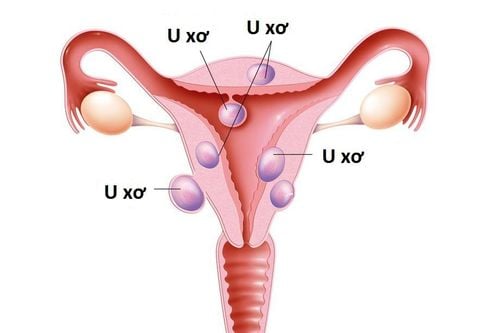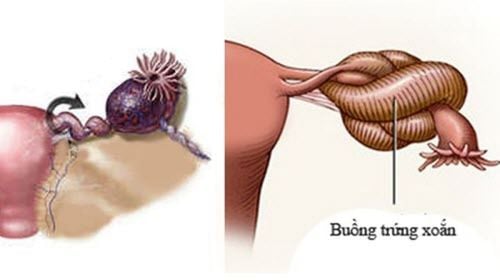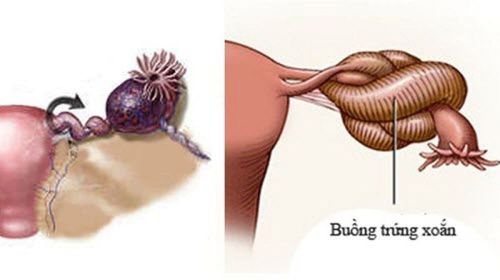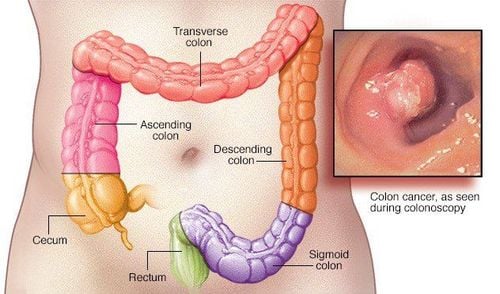This is an automatically translated article.
The article was professionally consulted by BSCK I Pham Thi Yen - Obstetrician-gynecologist, Department of Obstetrics and Gynecology, Vinmec Hai Phong International General Hospital.
Ovarian cysts are a complication of ovarian cysts. The disease often has no obvious symptoms, so it is difficult to detect. Complications of torsion ovarian cysts are extremely dangerous, even affecting motherhood and endangering women's lives.
1. What is a twisted ovarian cyst?
Ovarian tumor is a type of gynecological disease that occurs in all ages and all subjects. From pre-pubertal girls to old women who have gone through menopause, from normal people to pregnant women can have ovarian cysts with different degrees and rates depending on the type of tumor. The rate of ovarian cysts accounts for about 5 - 10% in the female population.
Twisted ovarian cyst is a complication of ovarian cyst disease.
Ovarian cysts come in two forms: pedunculated and pedunculated. Twisted ovarian cyst usually occurs in the case of tumors with long stalks, moderate weight, 8 - 10cm in diameter. These tumors are more prone to torsion due to their severity, however, cysts and cysts of the thyroid gland after egg abortion can also be torsion.
2. How dangerous is twisted ovarian cyst?
If an ovarian cyst has a stalk that is only slightly twisted, it will then return to its original position. If the torsion is stronger, the cyst will not be able to return to its original position. Without prompt surgery, the cyst can become necrotic and rupture due to lack of blood supply. This leads to inflammation of the peritoneum (peritonitis), which can be fatal.
3. Signs of twisted ovarian cysts
Sudden, severe pain in the abdomen, pain all over the abdomen. If the torsion is slow and not severe, then the pain will be milder. In some cases, the pain is relieved but dull.

Difficulty passing and defecation may occur. There is usually a localized pain point on one side of the pelvic cavity on the side of the torsion ovarian tumor. Nausea, possibly vomiting. If the cyst is so large that it puts pressure on the organs around the abdomen, there may be other symptoms. They are urinary frequency, difficulty urinating (if bladder compression), constipation (rectal compression), lower extremity edema (venous system compression).
4. What to do to overcome twisted ovarian cyst?
Women of reproductive age and teenage girls can experience torsion ovarian cysts due to changes in sex hormones. Therefore, women need to pay attention to regular health checkups (every 6 months) to detect the disease early. If a torsion ovarian cyst is found early, treatment is fairly straightforward. If detected late, the cyst will become necrotic, which can lead to death.
The most effective and appropriate treatment method is usually surgery. This method includes open surgery and laparoscopic surgery with the following levels of surgery:
Surgical removal of pedunculated ovarian cysts. After surgery, the patient will recover quickly. In the case of having to remove part of the ovary, the rest will continue to function normally and ensure reproductive function. Emergency surgery when there is a complication of necrosis or peritonitis. This type of surgery is complicated, even dangerous. Complications can occur such as infection and intestinal adhesions causing intestinal obstruction later.
5. Laparoscopic appendectomy for torsion ovarian cysts at Vinmec Hai Phong International Hospital
Laparoscopic appendectomy is a routine technique, which is routinely applied at Vinmec Hai Phong International General Hospital to treat gynecological diseases such as ovarian cysts,... Advantages of the technique include :
Solve pathological subsection block. Faster recovery time compared to laparotomy. Minimize antibiotic use due to prophylactic antibiotic use. Procedure (steps to perform):
Step 1: Consultation and approval for surgery with the Specialist Director, Head of Obstetrics Department, Anesthesiologist.
Step 2: Perform surgery in the operating room.
Step 3: Post-operative care.
Normal manifestations after surgery:
Vital signs are stable. No accidents. Discharge from the hospital on schedule. Why should this technique be performed at Vinmec Hai Phong International General Hospital?
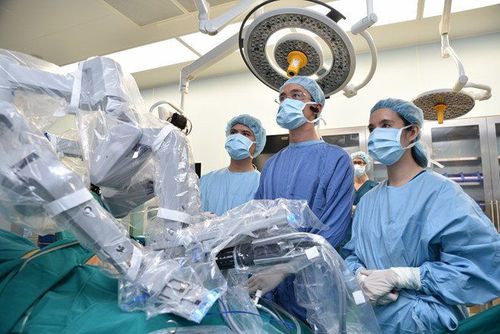
The most modern equipment in Vietnam such as anesthesia machine in the operating room. Experienced doctors: Doctor Pham Thi Tuyet Mai, Doctor Tran Thi Mai Huong, Doctor Pham Thi Yen, Doctor Bui Thi Thu, Doctor Tran Thi Thanh Huyen,... the procedure is carried out seriously, before surgery must have time to make a complete checklist (time out) before surgery... Latest regulations in the world. Vinmec Hai Phong International General Hospital is equipped with the most modern equipment in Vietnam such as anesthesia machines in the operating room, providing optimal treatment efficiency. Under the supervision of a team of experienced doctors, the procedures are carried out seriously, regularly checked by someone, and always updated with the latest procedures and regulations in the world.
Please dial HOTLINE for more information or register for an appointment HERE. Download MyVinmec app to make appointments faster and to manage your bookings easily.





